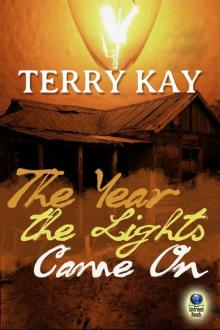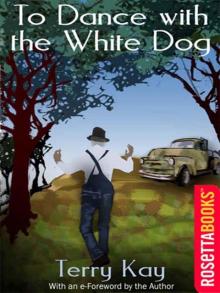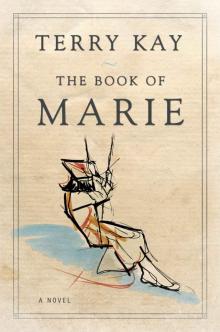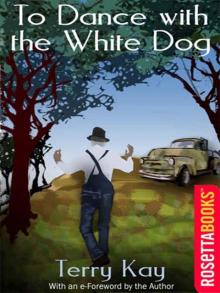The Book of Marie Read online
Page 5
The first person to reach me after the game was my brother, Toby. He said, “Mama wanted me to make sure you were alive.”
“I’m not sure,” I told him.
“Well, by God, that last pass you threw was dead on the money,” he enthused. “What’s that make y’all now, four and three?”
“Yeah,” I muttered.
“Damn,” he exclaimed. “That’s close to the best record this school’s ever had.” He added, “You going to the dance?”
“I don’t know. Tell you the truth, I’m worn out,” I answered honestly.
Toby laughed and threw his arm around my neck. He whispered, “Aw, horseshit, boy, ain’t nothing wrong with you that rubbing up against one of them cheerleaders won’t cure.” He slipped his car keys from his pocket and handed them to me. “I’ll ride home with Daddy and Mama,” he said. “Go have some fun. Just don’t go messing up my backseat.” He laughed again, then looked warmly at me. “Hey, boy, I’m proud of you. For somebody that’s worthless as a tit on a boar hog trying to do farm work, you all right. You know that?”
I smiled and flicked a weak jab toward him. There were times when I loved Toby to the point of tears.
“You better get something on that cut,” Toby advised.
“Yeah, I will,” I said.
I watched Toby fold back into a dance of bodies do-si-do-ing around the team. Sally Dylan rushed to me, threw her arms around me, squealed in my ear, then slipped from me and dashed for Art. Brenda Davis and Jennifer Mobley hugged me. Kenny Williamson, who had had to quit football because of asthma, shook my hand and said something I did not understand, but smiled as though I did, and then I started a limp-walk toward the field house.
“Great game, Cole,” someone yodeled from the bleachers. I glanced toward the voice. It was Gervis Morgan, who had played quarterback two years earlier. He was wearing his letter jacket. I threw up a hand in acknowledgment.
And then I heard an unmistakable call: “Rah, rah.”
Marie Fitzpatrick was standing near the bleachers. I stopped walking and looked at her. I had never seen her at a game.
“Yeah,” I said wearily.
She walked onto the field and crossed to me.
“Where are you going?” she asked.
“To get out of this uniform,” I told her.
“Let me walk with you a few feet,” she said.
“Why?”
“To make my mother and father believe I’ve got friends,” she said lightly. “Don’t look, but they’re up there in the stands, checking you out.”
“Why me?”
“You wouldn’t know it, but my father played football in college. He thinks you’re a shining star of some sort. I told him we were great buddies.”
“Well, I’m glad you think so,” I said.
“They made me come to the game tonight,” she continued. “They said I’m missing out on life, not being with all the young people of Overton. You think I’m missing out on life, Cole?”
“It’s not my life,” I said.
“Are you hurt?” she asked.
“Not bad.”
“I thought they’d killed you. I thought we’d see flags at half-mast tomorrow.”
“A couple of times I thought so, myself,” I admitted.
Marie laughed. “That was funny, Cole.” She stopped walking and turned to me. “I think they’ll believe me now.” She paused. “I hope you’re all right,” she added. “That cut looks pretty bad.”
“It’ll heal.”
“I’m sure it will,” she said. “Anyway, thanks for the walk. I’ll see you.”
She turned and moved quickly away. I watched her. She waved across the field to a crowd still dancing around Hugh Cooper. It was a wave meant for her mother and father. No one waved back.
Torment is as much a part of being young as hormones playing chemical tricks on the body. As a teacher, I have long observed that young people who know how to weave in and out of torment are the ones less troubled.
For a reason I still do not understand, I handled torment well during my teenage years. Perhaps it was because I learned early that humor could deflect words dipped in the poison of meanness—intended or unintended. Laugh at yourself and others tended to laugh with you, not at you.
I knew there would be torment after the game we won on the night Marie Jean Fitzpatrick walked onto the field to speak to me in a show intended to please her parents. It began in the mugging and the giggling and the silliness of my teammates as we showered and dressed for the after-game dance at Kilmer’s Recreation Hall. Little comments. Winks. Kisses blown my way. Art straddling a towel, making it look like a giant Kotex, saying, “Anybody know who this is?”
I laughed and everyone laughed with me.
“Watch out, boy,” Art bellowed.
In the melodrama of those autumn nights of football, I danced only the last dance at the after-game party at Kilmer’s Recreation Hall. It was a trick I had learned as a sophomore, watching Gervis Morgan. Even when he had played an entire game without being tackled, Gervis would enter Kilmer’s with a pronounced limp and little dabs of iodine on his face. He would sit heavily in a chair on the edge of the dance floor and accept praise and sympathy like a bored king enduring gifts from peasants. When the last dance was announced, Gervis would pull himself painfully from his chair, drag his aching body onto the dance floor, and slump against any willing girl with pillows for breasts.
I too played the role of the injured, as Gervis had played the role, but after the game we won 13-7 there was no pretending. My face and leg were bandaged. The knotting of nerves at the base of my skull had splintered off into my left arm and I could not lift the arm above my shoulder. There was a ringing in my ears.
I did not sit near the dance floor in my usual chair (the one Gervis had occupied), but at a back table, and watched the festivities. I remember thinking there were only three more games to play and I would be able to skin myself out of the football uniform I wore and would never again duck my head through a pair of shoulder pads or into an ill-fitting helmet. Glory was overrated. Glory hurt like hell.
Now, seeing it from the telescope of fifty years, maybe it would have been different at another school, with better equipment and better players, or with a coach who was not drifting aimlessly in a cloud of confusion. There was no question that Cone Bailey was deteriorating, and what happened that night was proof of it. It remains one of the oddest moments of my memory, yet, now, when I think of it, I cannot stop the smile that grows across my face.
At halftime of the game, trailing 6-7, Cone Bailey commanded a hush from the team, and he strolled among us, rubbing the palms of his hands together, a slobbering, wild grin etched in his face. He said nothing about the game, or about football. He spoke instead of the quiet ones. “I’ll guarantee you, boys, it’s the quiet ones that’s getting it all. All you boys going around bragging about it, y’all ain’t getting nothing. Nothing. Old Lamar, there. He ain’t getting nothing. He ain’t getting his finger wet, unless he’s picking his nose, but to hear him tell it, he’s got women lined up from here to Athens. But you take old Sidney, there, he’s getting so much, he’s wasting away. Anybody ever hear Sidney talking about it? Anybody ever hear Sidney talking about anything? I’m telling you, boys, you can take a lesson from old Sidney.” Sidney was Sidney Witherspoon, a shy junior who stuttered and who played football only because his father, who was the Presbyterian minister, forced him to play.
It was a speech that left all of us stunned. I believe it was Lamar who whispered, “We got to get that man laid.”
I remember glancing around the dimly lighted dance floor, searching for Sidney Witherspoon, but I did not see him. I remember thinking it would be a good thing to go to the Presbyterian Church on Sunday and to sit with Sidney through one of his father’s monotone sermons. I remember pledging to talk to Lamar, knowing that Lamar would make Sidney a target of his ruthless ribbing.
Sitting alone, listening to the music, wa
tching the dancing—bodies against bodies—I thought of Marie and I knew the kidding I had received in the locker room was not over.
I was right. Near the end of the night, Wormy made his way to the table where I was sitting. He asked in an easy fashion, “What’s with you and the crazy girl?”
“What crazy girl?” I said.
“You know. Marie. The Kotex Queen.”
“Nothing,” I replied.
“I saw you walking off the field with her.”
“No, she was walking off with me,” I said.
“Same thing.”
“Not in my book.”
“Looks like she’s after you,” he said.
“Good Lord,” I sighed. “You ever heard of the word impossible, Wormy?”
“Yeah, sure have,” he replied. “All my life, I’ve heard it was impossible to run a mile in under four minutes, but it happened, didn’t it? This year. Maybe this is the year nothing’s impossible. Hell’s bells, we may win six games. We do, they’ll have statues of us in the middle of town.”
“I can’t wait,” I said.
“Fate, boy, fate,” he teased. “You can’t fight fate.”
The music to Ebb Tide ebbed away and there was a shuffling of feet as dancers moved across the floor.
Alyse Lewis—the writer of the letter I received about the reunion—called out: “Last dance, last dance.” Her voice was forced cheerfulness. Alyse was captain of the cheerleaders. She was pretty and friendly and caring. She repeated, “Last dance, everyone. Last dance.” A look of sadness swept across her face and I thought of the whispered news that Alyse and Corey had agreed to stop dating one another. Interference from her parents, the whispers said.
The opening strains of Stranger in Paradise cried mournfully from the jukebox.
“Com’on, Cole, let’s go find a woman,” Wormy said.
“I think I’ll sit this one out,” I told him.
“You hurt that much?”
“I do,” I admitted.
“See you,” Wormy said, walking away in his affected last-dance limp.
I watched as couples floated together on the dance floor, slow-moving to the music, and then I pulled himself from my chair and started toward the door, where Alyse stood.
“You leaving, Cole?” she asked.
“Yeah,” I said.
“It’s the last dance and you haven’t been on the floor all night,” she said. “I’ve been watching you.”
“I’m a little too sore to do much of anything but walk,” I told her.
“I’ll bet you are,” she said tenderly. She looked longingly at the dancers nudging against one another, faces against faces, arms wrapped around bodies, and then she turned back to me. “Can I walk you to your car?”
“Sure,” I answered.
Outside, the night was cool. A half-moon lounged against a cushion of murky white clouds. Alyse slipped her hand under my arm and we walked slowly across the parking lot toward Toby’s car. I could smell the scent of perfume from her neck. Moonlight gathered like blond smoke in her blond hair. Stranger in Paradise drifted from Dewitt Kilmer’s recreation room.
“You seem a little down,” I said.
She sighed. “I’m all right.”
“You don’t sound like you are,” I said.
“Oh, I guess I’m just lonely.”
“Thinking about Corey?”
“Maybe. I’m sorry he got hurt.”
“Why did you break up?”
She did not answer for a moment. Then: “We just did.”
We were at Toby’s car.
“Thanks for walking out with me,” I said.
She looked up at me. “Can I have a hug, Cole?”
“Sure,” I replied. I folded my arms around her and I could feel her nestle into me. She tilted her head to gaze up at me.
“Please kiss me,” she said softly. She pushed up on tiptoe, ran her hand behind my neck and pulled me to her. The kiss was warm, moist. Her tongue flicked over my lips, parted them, slipped into my mouth. Her fingers kneaded the back of my neck and her body shuddered against me. And then she pulled back. “Oh, God,” she whispered. “I’ve wanted to do that for a long time.” She released me, turned and hurried away, without looking back.
I could still taste the peppermint of Alyse Lewis’s kiss as I turned Toby’s car onto Church Street.
There was one light on in Marie Fitzpatrick’s home. Her room, I guessed. I imagined her propped against a mound of pillows in her bed, reading.
And there, in Toby’s car, after a football game that left me aching but momentarily happy, I had a sudden and overwhelming sensation of sadness for the girl everyone considered crazy, the girl all of us ignored, the girl of our locker room jokes. She had walked onto a football field among people who would never speak to her, and she had forced herself to stand near me, pretending to belong—simply because she needed to perform the shameful role of being popular to bring comfort to her parents.
I had never known anyone who was so alone.
FIVE
It was six o’clock when he stopped writing. He struck the keys to email the words to Tanya, and then he dressed in his heavy winter clothing and went outside in the faded light of day. A fine snow was falling and the wind blew it like a dust storm, stinging his face. The cold of winter had been a great adjustment for him, coming to Vermont from the South. In his first year, he had dreamed of freezing—from cold and from loneliness—and then the spring had unfolded in its splendor of green, exhilarating him, and gradually, year by year, he had learned to accept the snow and the bone-chilling that came with it. Alyse Pendleton’s mention of two inches of snow had amused him, yet he understood it. Once in his youth, it had snowed in Overton County on Christmas day and the sight of it was still a great thing in his memory—Christmas cards made of weather. His mother had called it a miracle.
He drove from his home to the campus of Raemar University, parked in his assigned parking space, and walked across campus to the Epps Fine Arts Building, where his office was located.
It had been thirty-four years since he first arrived on the campus to interview for a position as a teacher of Southern literature, bringing with him the reputation of an able researcher and an energetic lecturer. And though he could cover the sacred grounds of Faulkner and Wolfe and Welty and O’Connor and most of the others who were considered icons of the Southern expression, he had concentrated his study on the life of Joel Chandler Harris, creator of the Uncle Remus stories. His biography, Briar Patch, had won the National Book Award and was considered a definitive accounting of the life of Harris. It was a pleasing honor, yet pragmatically he understood the limits of it. No one studied Joel Chandler Harris any longer, not in the reigning environment of politically correctness.
He had not intended to stay in Vermont longer than three years, enough time by his judgment to hone his craft and to concentrate on his biography of Harris, and then he would return to the South, hopefully to the classrooms of Upton University in Atlanta, his alma mater. Yet, he had lingered year after year, his life becoming rooted in the small town of Raemar and in the comfortable familiarity of the university. It was an institution with demanding academic standards, annually challenging schools of the Ivy League for excellence. Among its graduates were diplomats and politicians of national influence, business leaders of great wealth, scientists who had distinguished themselves in break-through research. And pleasing to Cole, there had been a number of published writers—novelists and poets and playwrights and screenwriters—emerging from the department of English. One, a woman named Ginger Kennedy, had won the Pulitzer Prize for playwriting.
Yet, to Cole, the joy of being at Raemar University was in the setting—the dazzling beauty of Vermont. The town and the campus was his universe and he had never lost the thrill of discovering it each day. It did not matter if it was the blazing of autumn or the echoing laughter of students, something about it exhilarated him with each sunrise.
On campus there was
a quadrangle with a statue in the exact center of the enclosure. The statue was of a man chiseled from a monolith of marble. Only the face and shoulders of the man had been shaped and polished. A benefactor of great wealth, a recluse, had placed the statue on the campus. On the day of its unveiling, he supposedly made the only public statement of his life. He said, I don’t know if that man’s rising up out of that rock, or if he’s sinking down into it. It’s something to think about. And then he sat down. For years, the students of Raemar had argued the possibilities. They had even named the statue (UN)BOUND.
Once he thought it was a ridiculous name, that it would be far more dignified to choose something from mythology, something as romantic as Pegasus or Odysseus, something that had the sound of poetry and mystery. Now, after more than thirty years of experiencing it daily, he believed (UN)BOUND was the world’s most appropriate name for an object.
On days crackling with energy, days of joy and excitement, days of such promise he could feel the power of regeneration churning in his chest, (UN)BOUND whispered to him as he walked pass it: Rising up, rising up, rising up…. And he would fantasize that the man embedded there was about to shatter the marble and stand full-bodied on legs chistled by the magic of his own will.
On days of sour moods, of schedules off track, of contentious exchanges with colleagues or students, (UN)BOUND whispered: Sinking down, sinking down, sinking down…. And he would wonder if the marble body was receding like a man gradually drowning in the thick soup of quicksand.
Only an oracle of great wisdom could make such accurate pronouncements, whispering from stone lips, he believed.
And on the day of going to his office after his writing of Marie Jean Fitzpatrick, he thought he heard the voice of (UN)BOUND saying, Rising up, rising up, rising up…. A voice made of wind and snow.
The campus was mostly deserted, a ghost village caused by the Christmas holidays. The few who greeted him were professors doing the same as he: checking for mail or messages or working on their own papers for publication. The silence of the building was both comforting and eerie.

 The Year the Lights Came On
The Year the Lights Came On To Dance With the White Dog
To Dance With the White Dog The Book of Marie
The Book of Marie After Eli
After Eli To Dance with the White Dog: A Novel of Life, Loss, Mystery and Hope (RosettaBooks into Film)
To Dance with the White Dog: A Novel of Life, Loss, Mystery and Hope (RosettaBooks into Film)